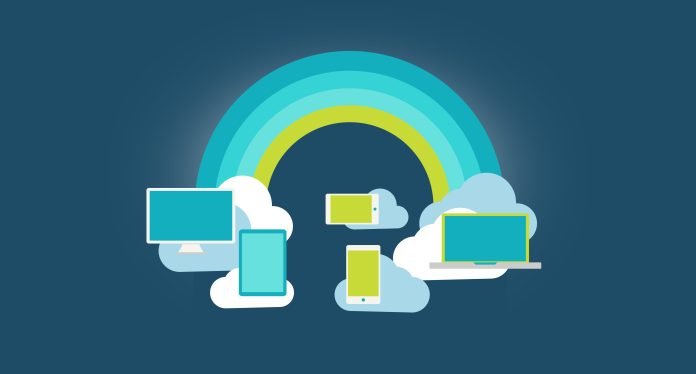In order to run a successful business, you’re going to need to invest in a variety of different types of software. From accounting software to word processing software, it’ll be important for your company to provide your employees with the software necessary to do their jobs.
But you should know that there are two different ways to obtain and store software. You can choose to go with either cloud software or on-premise software for your business.
So, what are the main differences between cloud vs on-premise software? Well, that’s precisely what we’re going to discuss today in an attempt to help you pick out the right kind of software for your company.
Here is everything you need to know about cloud vs on-premise software.
What Is Cloud Software?
Cloud software is a type of software that is stored in the so-called “cloud.” Instead of sitting on a server in your office, cloud software will be in the cloud where you can access it whenever you want.
A lot of companies have started to utilize cloud software in recent years because it makes things easier for them. They don’t have to worry about investing in hardware that can be used to store the software they utilize on a regular basis.
If your company hasn’t done it already, you should, at the very least, look into what cloud computing can offer to you. It might be the perfect solution to all your company’s software needs.
What Are the Benefits of Using Cloud Software?
There are tons of benefits that you’ll be able to enjoy when you begin using cloud computing on behalf of your company. First and foremost, it’ll enable you to access any of your company’s software from anywhere that you would like since you won’t need to be in your office to get to it.
But that’s just the beginning when it comes to the benefits of cloud software. Here are a few more advantages that you’ll get access to with cloud software:
- Cloud software will be more affordable than on-premise software in most cases
- It will provide more predictable costs over the course of time
- It will make it easy to get remote IT support for your software
- It will keep your software as secure as can be at all times
After hearing about all these different benefits of going with cloud vs on-premise software, it should be simple to see why so many companies have started using it. Cloud computing can be a game-changer for so many businesses across a variety of industries.
What Are the Drawbacks of Using Cloud Software?
While there are a number of benefits of using cloud software, it’s worth noting that there will also be some drawbacks associated with it. They should be on your radar before you decide whether you want to go with cloud vs on-premise software.
For starters, cloud software is going to make you very dependent on your internet connection. If you ever lose internet in your office or if you ever can’t get access to it outside of your office, it’ll be impossible to use cloud software.
Cloud software can also be more expensive to use over the long run. There won’t be any big upfront costs associated with it. But because you’ll have to keep on paying for cloud software each month, you might end up spending more on it than you would if you went with on-premise software.
Additionally, you’re going to need to work hard to stay on top of the latest cloud software updates. An IT support company can assist you with this, but that could help to bring your costs even higher than they would be already.
What Is On-Premise Software?
Now that you have a better idea of what cloud software is, let’s get into talking about what on-premise software is. It’s a type of software that will be physically stored on the server or servers within your office space.
For a really long time, on-premise software was the only kind of software that companies could use. They didn’t have the option to invest in cloud software. Because of this, many business owners are more familiar with on-premise software than cloud software.
Some companies have started to move away from on-premise software thanks to the convenience of cloud software. But you might still want to consider using on-premise vs cloud software in certain situations.
What Are the Benefits of On-Premise Software?
If you choose to use on-premise software, there will be an initial investment associated with obtaining this software and setting it up on a dedicated server. You’re going to have to bite the bullet and deal with this investment accordingly if you decide to go in this direction.
But once you’ve secured the necessary on-premise software, you won’t have to spend a whole bunch of money on it in the future. You should be able to save yourself money over the life of your on-premise software.
On-premise software will also give you more control over how you use it since you will own it outright and have it on your server. You’ll be able to make changes to it or switch your configurations for it on a whim.
Outside of enjoying these advantages, you’ll also come to appreciate the fact that you can access on-premise software without having to use the internet. This will really come in handy if you ever lose the internet connection in your office.
What Are the Drawbacks of On-Premise Software?
After hearing about the benefits of using on-premise software, you might be wondering why so many companies are moving away from using it. It sounds like it would offer everything that companies need at this time.
But there are some big drawbacks that you’ll experience if you decide to use on-premise software. For example, it’s going to call for you to make a big investment in the software that you need as well as the server that you’ll use to host it. Not every company has the funds that it’ll take to purchase these things.
On-premise software is also going to force you to maintain both your software and your server. This can be very expensive and time-consuming in many cases. It’ll make paying for cloud vs on-premise software more manageable.
As if all that wasn’t enough, another downside of using on-premise software is that you will need to spend your fair share of time installing it on your company’s server and computers. This alone might deter you from wanting to choose on-premise software for your company.
Would Cloud or On-Premise Software Be Your Best Option?
We can answer questions like “What is cloud software?” and “What is on-premise software?” for you with ease. But we can’t answer this specific question without knowing more about your company and how it operates.
There are some companies that are going to be able to benefit from choosing cloud vs on-premise software in a big way. They’ll come to love how convenient it is to install and begin using cloud software.
If your company falls into this category, you will want to Google “cloud migration services near me” to track down an IT company that can assist you with taking advantage of all that cloud software has to offer.
There are also some companies that are going to be able to benefit from picking on-premise software. If your company can afford to spend the time and money that it’ll take to get it, you might love what it can offer to you.
As a business owner, you should sit down and evaluate all of your software needs before going with either cloud or on-premise software. This should put you in a great position to pick the option that is going to suit you and your business the best when it comes right down to it.
Understand the Differences Between Cloud vs On-Premise Software
Unfortunately, some companies won’t put enough thought into which type of software they should invest in. This will sometimes lead to them going with the wrong option and paying the price for it later.
Make sure you understand all the key differences between cloud vs on-premise software. It’ll make it so much easier for you to figure out which option you should choose. It’ll also help you make the most of your software once you begin using it.
Would you like to read some more informative tech articles that will benefit your business? Look for them elsewhere on our blog.





